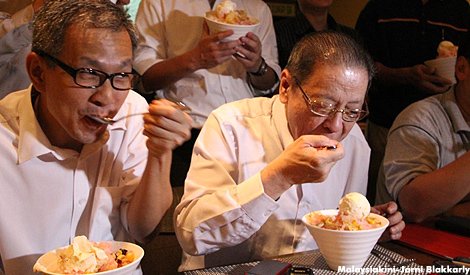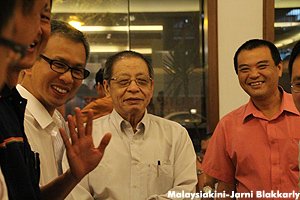While the 27,222 voters of in Sungai Limau state assembly seat in Kedah are casting their votes today to decide whether the PAS/Pakatan Rakyat candidate Mohd Azam Abdul Samat or the Umno/Barisan Nasional candidate Ahmad Sohaimi Lazim will be their State Assemblyman, one question that should worry all political parties and leaders is why Malaysian politics have descended to the lowest level of “lies, lies, lies”!
The UMNO/BN campaign in the Sungai Limau by-election started off with the lies that the DAP wants to form a Christian state, abolish the system of constitutional monarchy and that the DAP is anti-Malay and anti-Islam.
The MCA also contributed its lies when it claims that although more than 50% of the 1,842 Chinese voters are MCA members, only 10% of the Chinese electorate in the Sungai Limau constituency voted for the Barisan Nasional in the 13th general elections on May 5, 2013.
As I pointed out when I campaigned in Sungai Limau Dalam two days ago, about 1,400 out of 1,842 Chinese voters turned out to vote in the last general elections, of which PAS/PR secured some 800 votes and BN managed to obtain about 600 votes – i.e. some 55% to PAS/PR and 45% to UMNO/BN.
If PAS/PR could secure 90% of Chinese votes in a rural constituency like Sungai Limau, is MCA suggesting that the PR achieved the impossible of securing the support of some 150% of Chinese votes in the urban areas? Continue reading “Why have Malaysian politics descended to the lowest level of “lies, lies, lies”?”


 Lim led a team of party leaders and members of the media to the hotel in the heart of Kuala Lumpur and straight away went to the hotel’s restaurant to hold a press conference to rebut the claim made by the Umno-owned daily.
Lim led a team of party leaders and members of the media to the hotel in the heart of Kuala Lumpur and straight away went to the hotel’s restaurant to hold a press conference to rebut the claim made by the Umno-owned daily.